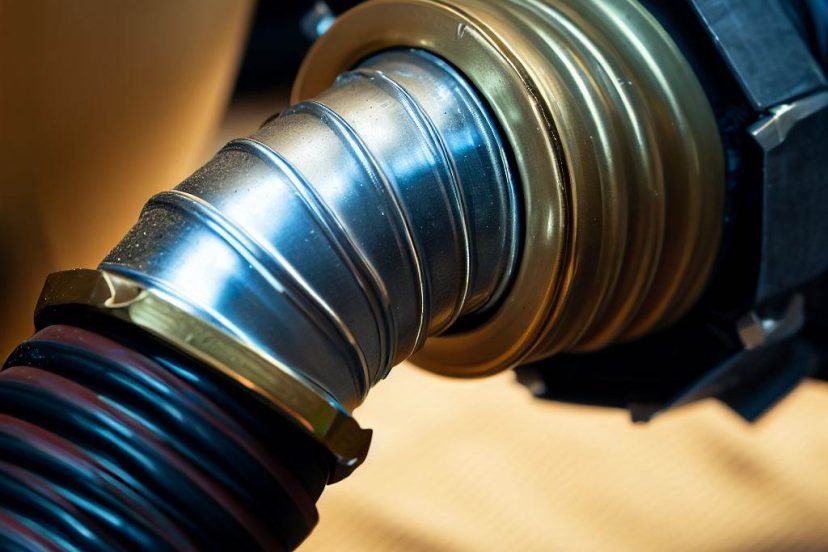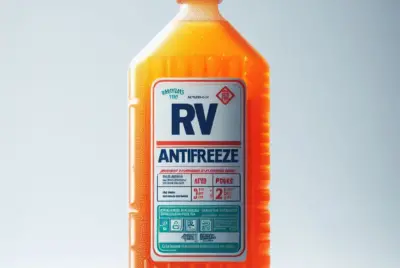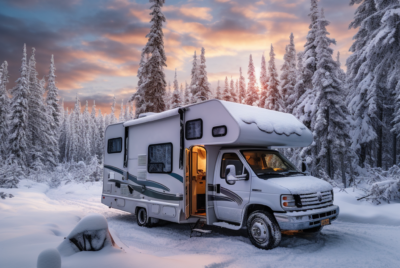9 Best Sewer Hoses & Managing Your RV Sewer Hose System
Greetings, fellow RV aficionados! With the exhilaration of the open road and the comfort of home at our disposal, RV camping provides us with the best of both worlds. Among the many aspects that make our journeys smooth and hassle-free, there is one that might not be glamorous but is absolutely crucial — the humble sewer hose.
Our odyssey into the world of RV sewer hoses will guide us through various landscapes, including understanding different types, their universal size applicability, the best RV sewer hose for environmental considerations, safety measures, maintenance timelines, and even storage hacks. Furthermore, we will explore some of the top brands in the market, providing a compass to navigate your next purchase.
So, buckle up as we embark on this enlightening journey. Remember, even the tiniest gears in a clock are essential for its precise working and are key to an uninterrupted and enjoyable RV camping experience.
Understanding the Types of RV Sewer Hoses
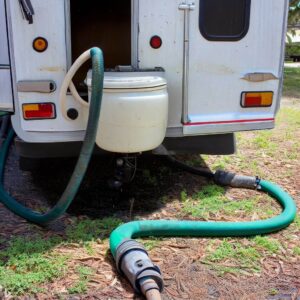 I can’t stress enough how vital these components are for maintaining a clean and healthy RV environment. Today, let’s dive into the different types of sewer hoses for your RV, their features, and how to choose the one that suits you best.
I can’t stress enough how vital these components are for maintaining a clean and healthy RV environment. Today, let’s dive into the different types of sewer hoses for your RV, their features, and how to choose the one that suits you best.
The Standard RV Sewer Hose
Think of the standard RV sewer hose as the reliable, old faithful of the RV world. It’s typically made of vinyl and wire, providing a good balance between durability and flexibility. These hoses can be compressed for easy storage, and they’re widely available, making them a solid go-to for most RVers.
The Heavy-Duty RV Sewer Hose
Ever wished for an RV sewage hose that can withstand a bit more wear and tear? That’s where the heavy-duty sewer hose for your RV steps in. This bad boy, usually composed of superior materials like polyolefin, gives you extra protection against leaks and tears. It’s designed for long-term use, especially if you’re a full-time RVer. Keep in mind, though, they can be a bit more expensive. But aren’t peace of mind and longevity worth the extra bucks?
The Super Heavy-Duty RV Sewer Hose
Yes, there’s another level of durability! The super heavy-duty sewer hose RV is like the superhero of sewer hoses. It’s designed for maximum resistance against the harshest conditions and long-lasting use. It usually features thicker walls and a robust construction that provides added protection against leaks and punctures. They’re perfect if you frequently camp on rough terrains. So, do you prefer to take the road less traveled? This might be your perfect match.
To sum it up, the world of RV sewer hoses is more varied than you might think. From the standard to the super heavy-duty, there’s a sewer hose for every RV and every camping style. It all boils down to your needs, your budget, and your camping habits. So next time you hit the road, remember it’s your ticket to a clean, carefree, and comfortable RV experience.
Decoding the Sizing Mystery: Are All RV Sewage Hoses Universal in Size?
The Standard Size: A Common Fit
For the most part, the answer to our burning question is a resounding yes. The standard size for an RV drain hose is 3 inches in diameter. It’s no coincidence that this also matches the size of most RV’s sewer outlets. It’s almost like finding the right key to unlock a door, isn’t it?
Exceptions to the Rule: Different-Sized Hoses
Just when you thought it was all cut and dried, here comes the plot twist. Not all sewer hoses RV designs follow the 3-inch rule. There are smaller options, like the 1.5-inch diameter hoses, usually used for grey water, which comes from your sink and shower. Have a think, what’s your RV usage style, and what would fit best for your needs?
Size and Compatibility: The Importance of Checking
Although the majority of sewer hoses are universal, it’s always important to double-check. Your RV’s make and model can sometimes throw a curveball, requiring specific or proprietary attachments. So, be sure to give your owner’s manual a quick peek to avoid any surprises. Remember, no one likes a mismatched hose situation, right?
Connecting Your RV Sewer Hose to the Dump Station
Safety First!
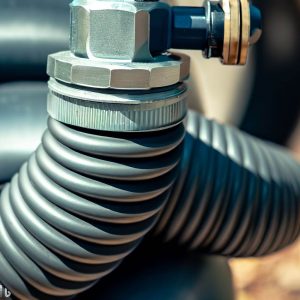 Before we dive in, remember to put on your disposable gloves. Handling RV waste isn’t just a ‘yucky’ task – it’s a matter of hygiene and safety. So, gear up and let’s get started.
Before we dive in, remember to put on your disposable gloves. Handling RV waste isn’t just a ‘yucky’ task – it’s a matter of hygiene and safety. So, gear up and let’s get started.
The Right Equipment
Ensure you’ve got a leak-proof, high-quality RV sewer hose. Trust me, the best RV sewer hose is an investment in a smell-free, hassle-free RV adventure!
Connect to Your RV
Locate your RV’s waste outlet and securely attach the elbow end of your sewer hose. Be sure it ‘clicks’ into place. Believe me, you don’t want to learn the hard way why a secure connection is vital!
Connect to the Dump Station
Next, connect the RV sewer hose fittings to the dump station pipes at the sewer hookup. Ensure the connection is snug – a loose hose can lead to a messy disaster.
Pro Tip
Consider using a sewer hose support system. It’ll help maintain a slight slope from the RV to the dump station pipes, ensuring a smoother, cleaner flow.
Hooking up your RV sewer hose to the dump station isn’t the most glamorous part of your journey, but it’s crucial. With the right knowledge, precautions, and RV sewer accessories like swivel fittings and tight-locking RV sewer connections, it’s a breeze. Here’s to many clean, carefree miles ahead on your RV adventures!
Safety First: Handling Your RV Sewer Hose with Care
Personal Protective Gear
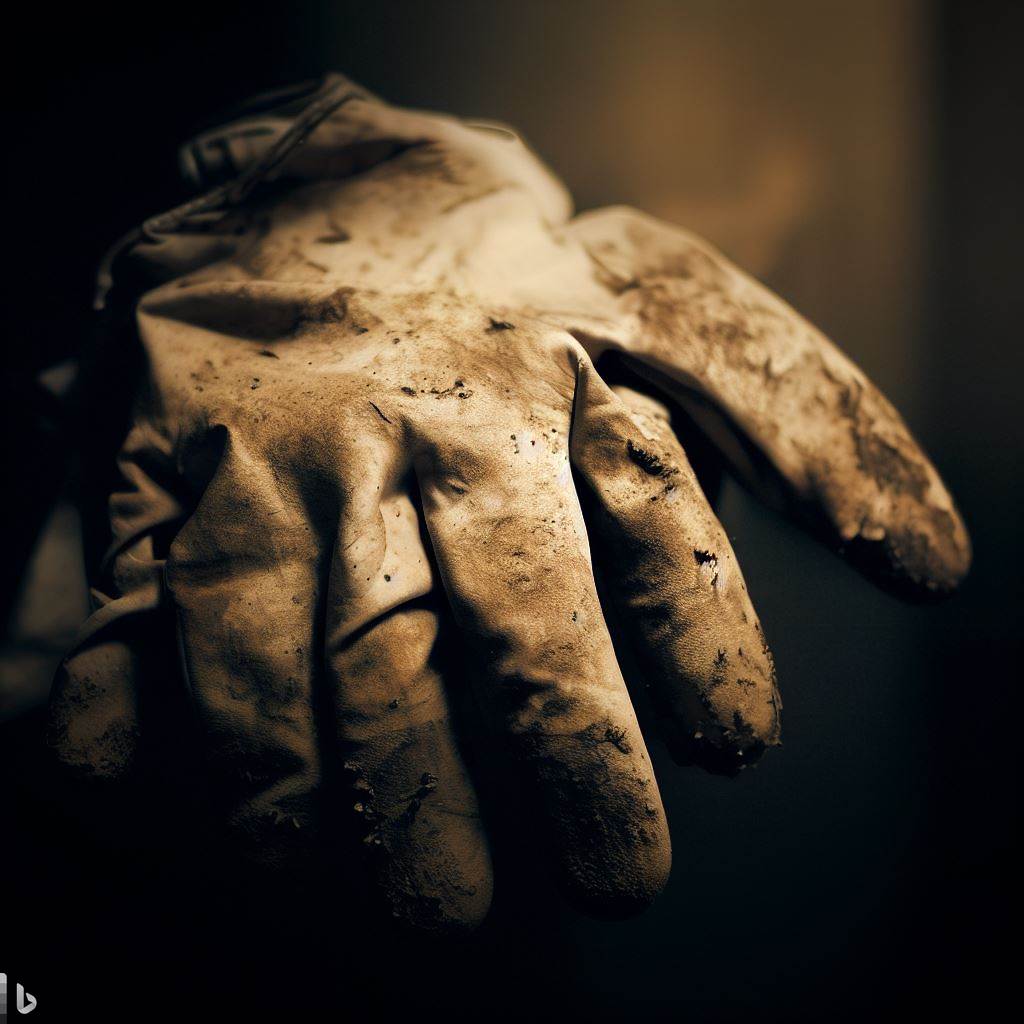 First up is your personal defense – protective gear. Handling an RV sewer hose without gloves is a big no-no! A pair of durable, waterproof gloves can be your best ally against potential germs and contaminants. Remember, the stuff in this hose is coming from what you deposit into your RV toilet. Would you want to touch something messy dripping out of the sewer port coming from the unsanitary black tank with your bare hands? Absolutely not!
First up is your personal defense – protective gear. Handling an RV sewer hose without gloves is a big no-no! A pair of durable, waterproof gloves can be your best ally against potential germs and contaminants. Remember, the stuff in this hose is coming from what you deposit into your RV toilet. Would you want to touch something messy dripping out of the sewer port coming from the unsanitary black tank with your bare hands? Absolutely not!
Proper Connection and Disconnection Procedures
Correctly connecting and disconnecting your hose to the underneath compartment of the RV and to the dump station is crucial to prevent any accidental spillage. Always ensure your hose is securely attached to your RV’s sewer outlet and the dump stations’ inlet before opening any valves. It’s like checking your locked doors before leaving the house – a necessary precaution!
Regular Inspection and Maintenance
Last, but certainly not least, regular inspection and maintenance of your RV sewer hoses can be a game-changer. Checking for any visible damage or leaks helps avoid any unexpected (and unpleasant) surprises. After all, a stitch in time saves nine, doesn’t it?
In conclusion, proper handling of your RV sewer hose isn’t just about utility, it’s about safety too. Armed with protective gear, correct procedures, and regular maintenance, you can ensure a seamless and safe RVing experience. So let’s remember these pointers and continue making unforgettable memories the safe way!
RV Sewer Hoses and the Environment: What Should We Consider?
As campers, we need to ensure our outdoor adventures remain in harmony with nature. Let’s discuss how we can make our sewer hose RV use as eco-friendly as possible.
Proper Waste Disposal
First and foremost, our mantra should always be “dispose of waste correctly.” Dumping your RV’s waste into an approved dumping station is not just a nice-to-have—it’s essential. Incorrectly disposed waste can contaminate water sources and harm local wildlife. Consider this: would you want to stumble upon improperly dumped waste during your hike? Probably not, right?
Eco-Friendly RV Sewer Hoses
More and more manufacturers are producing environmentally friendly options made from recyclable materials. These green hoses are not only durable but also lessen our footprint on Mother Earth. A win-win situation, don’t you think?
Non-Toxic Cleaning Agents
Finally, when it comes to cleaning your sewer hose for RV, consider using non-toxic, biodegradable cleaning agents. They work just as effectively, but without the harsh chemicals that can seep into the ground and affect local flora and fauna. Remember, every little bit helps in preserving the great outdoors we love so much!
In conclusion, our environmental considerations should revolve around proper waste disposal, choosing eco-friendly hoses, and using non-toxic cleaning agents. By doing so, we ensure our RV adventures remain enjoyable while also preserving the natural beauty around us. So, let’s continue exploring with care and responsibility. Happy eco-camping!
Store It Right: Proper RV Sewer Hose Storage
Cleanliness is Key
Firstly, cleanliness isn’t just close to godliness; it’s also the first step to storing your RV sewer hose. After each use, make sure to thoroughly clean the hose. A clean hose prevents unpleasant odors and bacterial growth. It’s similar to washing dishes after a meal – nobody wants leftovers lingering around, right?
The Art of Drying
Next, ensure your sewer hose RV is completely dry before storage. Storing a damp hose can invite mold and mildew. Imagine putting on a pair of socks you thought were dry but were damp. Yikes! Let’s avoid a similar situation, shall we?
Proper Storage Solutions
Finally, invest in a dedicated storage container or carrier. A specific container keeps the hose separate from other RV equipment and provides easy access. It’s like giving your hose its very own apartment. How cool is that?
In conclusion, proper storage of your RV sewer hose involves thorough cleaning, drying, and a dedicated storage solution. This not only helps prolong the life of your hose but also maintains a clean and orderly RV environment. So let’s continue to enjoy our RV adventures, one properly stored sewer hose at a time. Happy camping!
A Timely Swap: How Often Should You Replace Your RV Sewer Hose?
The Lifespan of an RV Sewer Hose
Typically, a well-maintained sewer hose for RV usage can last anywhere between 1 to 5 years. However, like anything else in life, it’s not set in stone. It’s kind of like guessing when your favorite pair of jeans will finally give out—it depends on the quality, usage, and how well you care for them.
Signs It’s Time for a Change
So, how do you know when it’s time to retire your old RV sewer hose? Visible cracks, leaks, or difficulty in securing a tight connection are your biggest red flags. If your hose starts resembling a leaky garden hose more than a sturdy sewer hose, it’s probably time for a replacement. It’s always better to be safe than sorry, wouldn’t you agree?
Regular Checks and Preventive Measures
The best way to extend the lifespan of your sewer hose RV is regular checks and proper maintenance. This includes cleaning the hose after each use and storing it correctly. Think of it as giving your hose a spa treatment—it keeps it in peak condition for longer!
In conclusion, the frequency of replacing your RV sewer hose depends largely on its usage and upkeep. Regular checks and care can extend its life, but at the first sign of any damage, don’t hesitate to get a replacement. After all, prevention is better than dealing with a messy problem at your campsite, right? So let’s keep our adventures rolling smoothly! Happy camping!
The Top 9 Best RV Sewer Hoses on the Market
- Camco
-
- RhinoFLEX Sewer Hose Kit: This 20ft kit includes a translucent elbow and 4-in-1 adapter, ensuring a secure fit. Its durability and ease-of-use make it a popular choice among RV enthusiasts.
- Valterra
-
- Valterra Dominator Sewer Hose Kit: Known for its flexibility and leak-proof nature, this 15ft or 20ft hose maintains its shape after being bent, a feature valued by many RV owners.
- Thetford
-
- Titan Premium RV Sewer Hose Kit: A robust and extended-length hose with an ergonomic ExtendGrip fitting and a Revolve universal sewer adapter with handle, making handling a breeze.
- Lippert
-
- Waste Master RV Sewer Hose: This model stands out for its CAM lock connector ensuring a leak-free connection to the sewer outlet, along with a durable and UV-resistant hose.
- Prest-O-Fit
-
- Blueline Ultimate Sewer Hose: The product offers a push-on connection for a quick and easy setup, and its heavy-duty vinyl covering gives it an added layer of protection against leaks.
- Hebbe
-
- Heavy-Duty Sewer Hose: A highly-durable, puncture, and abrasion-resistant hose that’s reliable and easy to use, making it an ideal choice for frequent travelers.
- Viper
-
- Viper Sewer Hose Kit: Notably flexible and sturdy, this hose remains reliable in extreme temperatures, both hot and cold, and its enclosed springs ensure the hose stays in shape.
- MORryde
-
- MORryde 90 Degree Sewer Hose Adapter: This hose adapter is praised for its easy installation and 90-degree sewer connection that works well in tight spaces.
- Barker
-
- Barker Sewer Hose Kit: A popular choice due to its ease of use, the Barker Sewer Hose Kit offers quality and affordability, ideal for those on a budget without compromising on the quality.
Conclusion
The road has been long, and our journey through the world of RV sewer hoses has been educational. From understanding the varying types, sizes, to the intricate environmental and safety considerations, we’ve learnt that these hoses are more than just a means to an end. They’re pivotal in maintaining the hygiene and functionality of our beloved RVs.
We also dove into the practical aspects of sewer hose maintenance and storage, and hopefully, these tips will assist you in prolonging the life of your hoses. Not to mention, our expedition through the top RV sewer hose brands and their best models has given you a roadmap for your next hose purchase.
Remember, RV camping isn’t just about reaching our destination. It’s about enjoying the journey, which comes from the confidence of knowing that every part of our RV is in top shape – and that includes the all-important sewer hose. Let’s continue embracing our RV adventures, one well-maintained sewer hose at a time. Happy camping!
FAQs about RV Sewer Hoses
What is the ideal length for an RV sewer hose?
The ideal length may vary depending on the distance from your RV to the campground’s sewer connection. However, a hose of 15 to 20 feet is usually sufficient for most situations.
Can I use a regular garden hose instead of a specific RV sewer hose?
No, it’s not advisable. Garden hoses are not designed to handle the type of waste that comes from an RV, and using one could lead to leaks and damage.
Why does my RV sewer hose have holes in it?
Your sewer hose should not have holes in it. If it does, it’s likely damaged and should be replaced immediately to prevent leaks and potential health hazards.
How do I clean my RV sewer hose after use?
After draining your tanks, you can clean the hose by rinsing it with water. Some RV owners also choose to use a special RV tank cleaning solution for a more thorough clean.
Is it necessary to use an RV sewer hose support?
While not always necessary, using an RV sewer hose support can help maintain a proper slope for waste flow, preventing clogs and ensuring that your tanks drain completely.

